EVENT ANNOUNCEMENT: Presentation of the Report „Circumventing Justice: The Statute of Limitations as a Mechanism for Denying War Victims the Right to Compensation
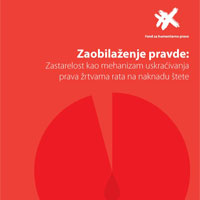
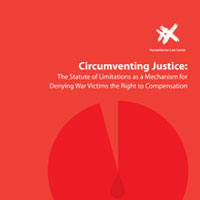 On Thursday, 28 June 2018, the Humanitarian Law Center (HLC) will present its report „Circumventing Justice: The Statute of Limitations as a Mechanism for Denying War Victims the Right to Compensation”. The presentation will take place at 12:00 in the Great Hall of the Media Centre. The Report analyses the practice of domestic courts in proceedings for the compensation of damages which occurred as a consequence of past human rights violations.
On Thursday, 28 June 2018, the Humanitarian Law Center (HLC) will present its report „Circumventing Justice: The Statute of Limitations as a Mechanism for Denying War Victims the Right to Compensation”. The presentation will take place at 12:00 in the Great Hall of the Media Centre. The Report analyses the practice of domestic courts in proceedings for the compensation of damages which occurred as a consequence of past human rights violations.
It can be observed that the domestic courts tend to apply restrictively the provisions concerning the effects of the statute of limitations on claims for damages, and that there is no consistent judicial practice in this regard, to assist in the interpretation of the legal provisions concerning the statute of limitations for such claims, with the result that the victims of past human rights violations are deprived of the right to compensation, with the explanation that the legally prescribed deadline for such claims has expired. Such an arbitrary application of the legal provisions which should regulate the statute of limitations in regard of damage claims, which is detrimental for the victims, has rendered a great number of victims deprived of their right to compensation by the Republic of Serbia, which is responsible for the damage done.
The HLC’s rich practice emerging from the civil suits which it has conducted against the Republic of Serbia on behalf of the victims, represents the basis for the Report. The Report elaborates the basic problems noted in the civil proceedings concerning damages before the domestic courts, the HLC’s experience in the representation of victims in the said proceedings, and the comparative practice of the successor countries of the former Yugoslavia in proceedings concerning compensation for damages.
The following people will discuss the findings of the Report:
- Ivana Žanić, the HLC Legal Team Coordinator
- Mihailo Pavlović, author of the Report
- Senad Jusufbegović, Association of the Concentration-camp Detainees in Bosnia and Herzegovina.
Simultaneous interpretation into English will be provided.






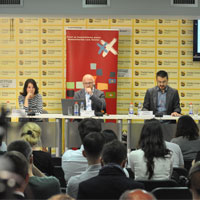




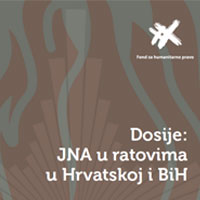
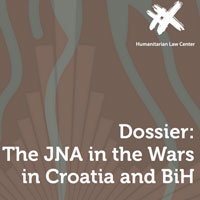 The role of the Yugoslav People’s Army (JNA) in the wars in Croatia and Bosnia and Herzegovina (BiH) and its transformation from the Yugoslav into the Serbian army, is the subject of this, the tenth Dossier of the Humanitarian Law Center (HLC). It is the most extensive of the HLC Dossiers so far, covering the period from the end of the 1980s up to May 1992. It explores how the JNA and political leadership of the Socialist Federative Republic of Yugoslavia (SFRY) and Serbia prepared for the wars, the JNA’s involvement in the conflicts, and its contribution to achieving the wartime goals of Serbia, the Republic of Serbian Krajina and Republika Srpska.
The role of the Yugoslav People’s Army (JNA) in the wars in Croatia and Bosnia and Herzegovina (BiH) and its transformation from the Yugoslav into the Serbian army, is the subject of this, the tenth Dossier of the Humanitarian Law Center (HLC). It is the most extensive of the HLC Dossiers so far, covering the period from the end of the 1980s up to May 1992. It explores how the JNA and political leadership of the Socialist Federative Republic of Yugoslavia (SFRY) and Serbia prepared for the wars, the JNA’s involvement in the conflicts, and its contribution to achieving the wartime goals of Serbia, the Republic of Serbian Krajina and Republika Srpska.



